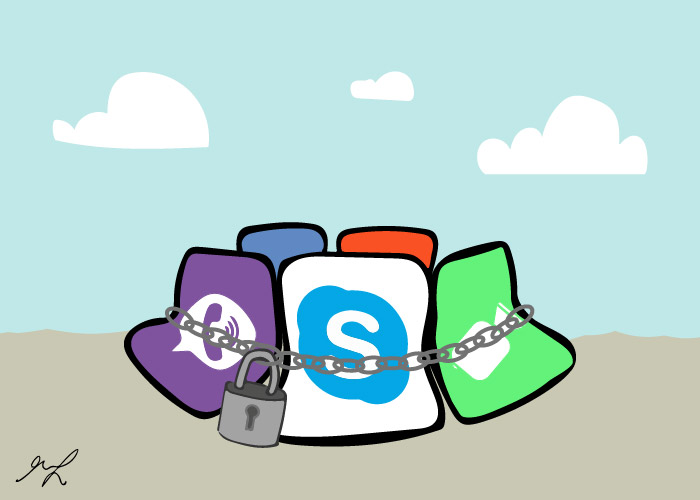Questioning why the TRA and telecommunication companies block VoIP services in the country and calling for the unblocking of such services.

Voice Over Internet Protocol (VoIP) is a method of communication that has become quite prominent in the past decade with the emergence of smartphones and faster Internet connections. It has allowed us to conduct phone calls to virtually any person via the Internet for free or at a minimal cost. Thousands of VoIP services can be found today that work on a range of devices.
One of the most well-known VoIP services, Skype, was acquired by Microsoft for $8.5 billion (AED 31.21 billion) in 2011, signifying the enormity of the market. Although the VoIP industry has seen a significant growth in the past few years, this has not been the case in the UAE. Most famous VoIP services such as Viber and Apple’s FaceTime have been blocked in the country. In fact, all iPhones officially imported to UAE do not come with the FaceTime app installed. To date, there is no clarity as to why there are such stern restrictions on VoIP services in the Emirates.
WhatsApp, the famous cross-platform messaging application, introduced VoIP earlier this year; however, Etisalat blocked the feature right away. Moreover, when Blackberry announced their BBM Voice feature, which was also a VoIP service, it was immediately blocked in the UAE.
In late 2014, the social media and news channels were flooded by questions as to the reason why Viber was blocked. The UAE’s Telecommunications Regulatory Authority (TRA) issued a statement clarifying that services such as Viber were not yet licensed in the country and that Etisalat and Du are the only ones that have the right to provide VoIP services. However, later on, a senior Vice President at Etisalat was quoted saying “Well, this [ban on VoIP] is a Telecommunications Regulatory Authority’s (TRA) concern” and that they “work with the laws [set] by TRA”, shifting the blame to the TRA.
This blame game that they have been playing has led people to look for workarounds in order to use VoIP services in the country. Today, most access such services by using a virtual private network (VPN), but the question remains to be the same: why impede the progress of technology?
By issuing licenses to only two organizations, the TRA has created a duopoly. Today, Etisalat and Du block whatever they see as a threat to their revenue streams, and as a result they are not found guilty for such action as they are legal licensees to such services.
The ban on VoIP services has started to affect more targeted VoIP apps such as baby monitoring applications. Recently, a user on Twitter tweeted that the app that works with a baby monitoring device was being blocked. The reason was that the app allows the monitor to send video and sound over the Internet.
VoIP is a result of technological progress and whoever tries to block it is trying to hinder the progress of technology. The UAE is headed towards becoming a smart country; however, the TRA and the telecom companies have proved that they are not headed in that direction by blocking such services. It is time for the telecommunication companies to accept competition and for the TRA to allow all other VoIP services to enter the market.




you are right!! those aps made communications easier between people all over the world!!
thank you for this article!!!!
This is my first visit to your site. ! I do not suppose I’ve truly read through anything like that before. So good to discover someone with unique feelings on this subject. Your site provided us valuable information to work on. You have done an extraordinary job!
Quite interesting post.
Quite informative post on VoIP technology. Its the fact that VoIP technology has made communication convenient, faster as well as much cost efficient. It is beneficial for both home and business use.